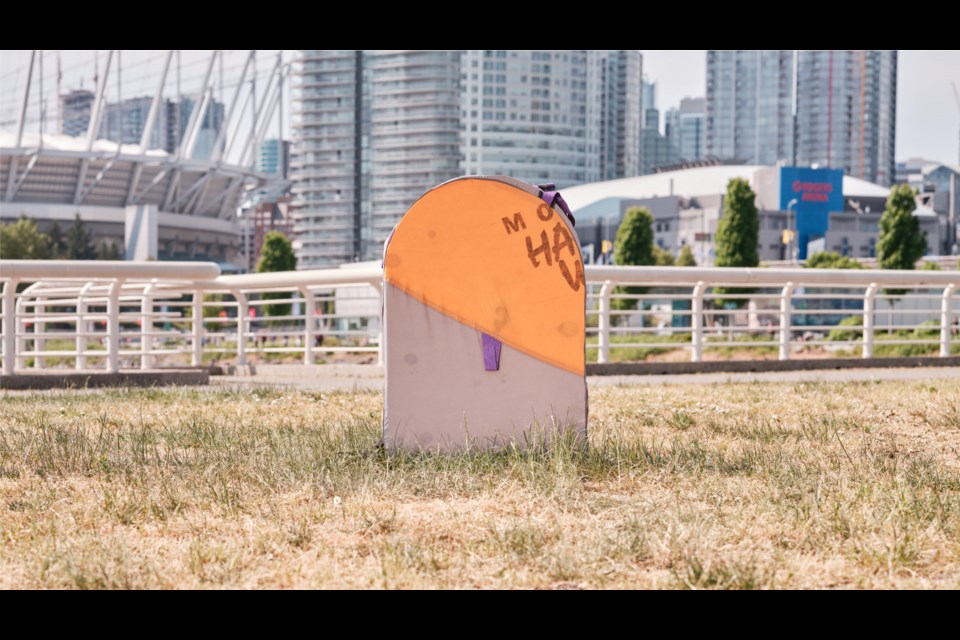Tombstones made from recycled tents are popping up across Vancouver.
They’re part of a new public art project called aiming to draw attention to the dangers of decamping and street sweeps.
The series of ‘tentstone’ installations made from salvaged materials is a collaboration between James Hearn and Jack Finn, who run the design studio Skeleton Crew Creative Studio based in Strathcona and feel like they’ve had a front-row seat to the increasing challenges of the Downtown Eastside since the displacements in April.
“The stark contrast of the struggles in the DTES against the serene backdrop of the North Shore mountains only heightens the sense of futility - and quite frankly absurdity - that this problem has been allowed to continue in the manner that it has,” the pair says in a statement. “We wanted to find a way to bring some of the frustration and hopelessness experienced to neighbourhoods that aren't presented with the day-to-day realities and hardships faced.”
Their intention was to install the art pieces in areas where the problem isn’t as visible as a symbolic warning that displacing encampments has serious implications for residents.
The idea is to regularly but unpredictably appear in different locations such as the beach and parks that are far from the DTES and sheltered from the issue of encampments. The insistence on showing up in these areas is also meant to demonstrate that displacing unhoused people is futile without adequate housing in place.
“As we’ve developed this project, it’s been really important to us to involve the community and organizations who are much closer to the day-to-day issues,” reads the statement. “We had really valuable input and insight from the patrons of Neighbourhood House, a few blocks from where we work and are grateful to them and the other organizations who’ve taken time out of their day to talk about the project and experiences of displacement.”
According to the project’s website, the street sweeps in April were the tenth major displacement attempt in the last ten years, “but only one of countless sweeps DTES residents are victims of on an almost daily basis.”
“Displacements lead to death when there’s nowhere left to rest,” reads the site.



